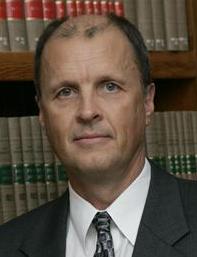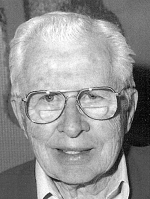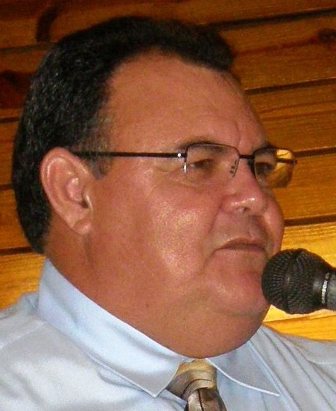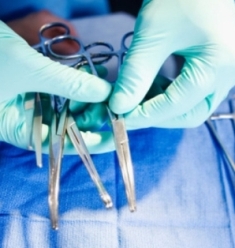Archive for May, 2010
Travers calls for more reform
(CNS): Despite the recent changes to the immigration law in order to facilitate key employee status for a number of posts related to the financial services sector, the chair of Cayman Finance said the country’s highly restrictive immigration and rollover policies, as he described them, need further reform. Anthony Travers said the current administration had reduced some of the negative effects but far more would have to be done if the island was to enhance its financial services sector and generate more cash from it. Cayman needed to attract more of what he called the industry’s ‘substantial presence’, which would require higher quality professionals.

Legal aid still unsettled
 (CNS): The clerk of the court revealed some of the findings of the recent Legal Aid review last week while giving evidence to the public accounts committee. Although the results of the report undertaken earlier this year have remained under wraps Valdis Foldats who was a member of the review committee revealed that the cost of a legal aid clinic would be far more expensive than the current arrangements. The review was finished several weeks ago in March but government is refusing to reveal its contents, despite an FOI request submitted by CNS. Foldats revelations were the first indication and public confirmation that the findings may not be to government’s liking.
(CNS): The clerk of the court revealed some of the findings of the recent Legal Aid review last week while giving evidence to the public accounts committee. Although the results of the report undertaken earlier this year have remained under wraps Valdis Foldats who was a member of the review committee revealed that the cost of a legal aid clinic would be far more expensive than the current arrangements. The review was finished several weeks ago in March but government is refusing to reveal its contents, despite an FOI request submitted by CNS. Foldats revelations were the first indication and public confirmation that the findings may not be to government’s liking.

EU to get tough with hedge funds and private equity
 (The Guardian): The European parliament is expected tomorrow to approve a draft directive to toughen regulation of hedge funds and private equity firms despite a growing tide of opposition from leading politicians and lobby groups in the UK and America, where both industries are clustered. Labour’s City minister Lord Myners has described the proposed regulatory crackdown – being championed by France and Germany – as "fundamentally flawed and promot[ing] protectionism under the guise of protection". Both the Conservative party and Liberal Democrats have similar views. US treasury secretary Timothy Geithner has also been critical.
(The Guardian): The European parliament is expected tomorrow to approve a draft directive to toughen regulation of hedge funds and private equity firms despite a growing tide of opposition from leading politicians and lobby groups in the UK and America, where both industries are clustered. Labour’s City minister Lord Myners has described the proposed regulatory crackdown – being championed by France and Germany – as "fundamentally flawed and promot[ing] protectionism under the guise of protection". Both the Conservative party and Liberal Democrats have similar views. US treasury secretary Timothy Geithner has also been critical.

Roger Stanley Johnson, MD
 Roger Stanley Johnson, MD, a physician and attorney, who was instrumental the building of a hospital on Cayman Brac 40 years ago has died died on Sunday, May 2, 2010, in Kerrville, Texas. In addition to his other contributions to the Brac hospital project, at his own expense he took Evadne Banks (Scott at the time) and Pearl Scott (Ryan) at the time, to Corpus Christi, Texas and arranged to have them trained in a crash course as Xray and Lab Technicians in the hospital at the Corpus Christi, where he was chief surgeon This enabled Evadne to meet these needs at our hospital soon after it was opened, until her retirement a few years ago. The Cayman Brac Hospital has a plaque honoring his contributions.
Roger Stanley Johnson, MD, a physician and attorney, who was instrumental the building of a hospital on Cayman Brac 40 years ago has died died on Sunday, May 2, 2010, in Kerrville, Texas. In addition to his other contributions to the Brac hospital project, at his own expense he took Evadne Banks (Scott at the time) and Pearl Scott (Ryan) at the time, to Corpus Christi, Texas and arranged to have them trained in a crash course as Xray and Lab Technicians in the hospital at the Corpus Christi, where he was chief surgeon This enabled Evadne to meet these needs at our hospital soon after it was opened, until her retirement a few years ago. The Cayman Brac Hospital has a plaque honoring his contributions.
He was born on April 29, 1924, in St. Paul, Minn. A Fellow of the American College of Surgeons, Dr. Johnson received his undergraduate and medical degrees from the University of Minnesota. He practiced medicine for 33 years in Minnesota and Corpus Christi before moving to Dallas in 1984.

Nature loss ‘to damage economies’
 (BBC): The Earth’s ongoing nature losses may soon begin to hit national economies, a major UN report has warned. The third Global Biodiversity Outlook (GBO-3) says that some ecosystems may soon reach "tipping points" where they rapidly become less useful to humanity. Such tipping points could include rapid dieback of forest, algal takeover of watercourses and mass coral reef death. Last month, scientists confirmed that governments would not meet their target of curbing biodiversity loss by 2010. "The news is not good," said Ahmed Djoglaf, executive secretary of the UN Convention on Biological Diversity (CBD). "We continue to lose biodiversity at a rate never before seen in history – extinction rates may be up to 1,000 times higher than the historical background rate."
(BBC): The Earth’s ongoing nature losses may soon begin to hit national economies, a major UN report has warned. The third Global Biodiversity Outlook (GBO-3) says that some ecosystems may soon reach "tipping points" where they rapidly become less useful to humanity. Such tipping points could include rapid dieback of forest, algal takeover of watercourses and mass coral reef death. Last month, scientists confirmed that governments would not meet their target of curbing biodiversity loss by 2010. "The news is not good," said Ahmed Djoglaf, executive secretary of the UN Convention on Biological Diversity (CBD). "We continue to lose biodiversity at a rate never before seen in history – extinction rates may be up to 1,000 times higher than the historical background rate."

Tell-all generation learns to keep things offline
 (New York Times): Min Liu, a 21-year-old liberal arts student at the New School in New York City, got a Facebook account at 17 and chronicled her college life in detail, from rooftop drinks with friends to dancing at a downtown club. Recently, though, she has had second thoughts. Concerned about her career prospects, she asked a friend to take down a photograph of her drinking and wearing a tight dress. When the woman overseeing her internship asked to join her Facebook circle, Ms. Liu agreed, but limited access to her Facebook page.
(New York Times): Min Liu, a 21-year-old liberal arts student at the New School in New York City, got a Facebook account at 17 and chronicled her college life in detail, from rooftop drinks with friends to dancing at a downtown club. Recently, though, she has had second thoughts. Concerned about her career prospects, she asked a friend to take down a photograph of her drinking and wearing a tight dress. When the woman overseeing her internship asked to join her Facebook circle, Ms. Liu agreed, but limited access to her Facebook page.

Talk to auditors, says Miller
 (CNS): The chair of the Public Accounts Committee has warned civil servants to respond to auditors from the Internal Audit Unit as well as the Auditor General’s Office when they ask for information. During the committee’s meeting last week, when a number of witnesses turned up with new information regarding the fuel card usage and management report, Donald House, Director of the Internal Audit Unit, pointed out that his office had requested information numerous times during its audit to no avail. Ezzard Miller pointed out the importance of all audits and that government departments should not be waiting until they were called to PAC to offer up the necessary information.
(CNS): The chair of the Public Accounts Committee has warned civil servants to respond to auditors from the Internal Audit Unit as well as the Auditor General’s Office when they ask for information. During the committee’s meeting last week, when a number of witnesses turned up with new information regarding the fuel card usage and management report, Donald House, Director of the Internal Audit Unit, pointed out that his office had requested information numerous times during its audit to no avail. Ezzard Miller pointed out the importance of all audits and that government departments should not be waiting until they were called to PAC to offer up the necessary information.

Animal welfare – Who cares?
As a citizen of this country I am often confused over the many contradictions that exist here. We make some interesting claims about how sophisticated we are financially and how much wealth we have. We brag about our BlackBerry penetration being one of the best in the world and yet socially we lag behind on so many important issues.
One issue that has recently come to my attention is how we treat our animals. We brag about all of these things, yet Cayman does not have a single dog park!
I was the proud owner of two lovely dogs for most of my adult life – Oscar and Rupert. Admittedly they were like children to me and when I moved to Cayman I could not imagine leaving them in the States. Arrangements were made for them to come and for the 13 years that they were alive they wanted for nothing. Ironically, neither was a pedigree but both had been rescued from uncertain futures, including the pound. I also had the privilege of growing up with Prince – my aunt’s mixed breed dog who, I recall, was fiercely protective and a lot of responsibility. As a child I was responsible for making sure that he was walked twice per day and fed. As it turned out he was a wonderful childhood companion. Perhaps this is why my love and understanding of animals is deep-seated and ingrained from a young age. As the saying goes, the best lessons are learnt early on.
I’ve always been appalled at stories of animal abuse and animal neglect and how seemingly accepted these acts are in our so-called sophisticated and Christian community. When reading stories of animals being tortured, iguanas being brutally executed and knowing that many in our community could care less, I realize that we have some serious questions to ask ourselves. Our lack of a social conscience when it comes to the animals that we share this planet with is nothing short of horrific. I often wonder if people know that individuals who have psychotic tendencies often start with the abuse of animals and then move onto humans from there.
Until recently most people did not even know about the existence of the Animal Law. Albeit archaic, it’s a start towards legislating against animal cruelty. In 46 of the 50 states animal cruelty is a felony with serious consequences. When was the last time you can recall anyone being successfully prosecuted here for animal abuse or neglect?
My own recent experiences have taught me that neither pet owners, the police or even the judiciary are aware of the law and its contents. Owners do not know that they are supposed to register their animals with the Department of Agriculture or that the law conveys other responsibilities on them.
Our commitment to revising the laws on animal cruelty appears to be non-existent. We have the very bare minimum resources dedicated to this with only 1 animal welfare officer in the Cayman Islands. The Humane Society is strapped for resources and volunteers often see the worse cases of abuse. Our stray population of cats and dogs is out of control and most people hold onto the perverse attitude that there is something innately wrong with spading/neutering their pets.
I am no expert on this topic but recently my heart has been drawn to the issue on a personal level. I can’t fathom how people would chose to spend money on a purebred just to have bragging rights of ownership and not fully understand this is a life-long commitment that you have undertaken. I have always said that in some respects dog ownership is a more serious commitment than having children. At some point children grow up and most are able to help themselves. Dogs will always require someone to feed them, walk them and seek medical attention for them as well.
Dogs are complex creatures that not only require physical exercise but also mental stimulation. Some breeds are very smart and would have been bred for hundreds of years for a particular task. I am often amazed at how little a person bothers to educate themselves about the breed of dog that they own and what specific needs they may have that are unique to their breed. I have witnessed dogs running in circles as though they are stir-crazy because they are locked up on back porches with automatic feeds and newspaper to use the bathroom. The lack of understanding that it is NOT natural for a dog to eat, sleep, play and defecate in the same area is astounding.
How would you feel if you were incarcerated in these conditions with little human contact? Allowing a dog to get basic exercise to me seems like a no-brainer and yet we have many people in our community who tie dogs up and think they are wonderful pet owners and have fulfilled their obligations.
Being a responsible pet owner is much more than just providing adequate water, food and shelter for your pet. Domestic pets are completely dependent on their owners for their welfare. Many people do not realize that dogs are pack animals just like we are and thrive on operating as part of a family and hierarchy. In fact, we can learn a lot about leadership and the natural rules of discipline from dogs. Just like us they require companionship and proper socialization. Recently I was touched by a story of an elderly man with dementia who had gotten lost. When they found him, sadly he had passed away, but his dog had stayed with him for 7 days until he was found. They are indeed man’s best friends and their loyalty has often led to these heroic tales. Yet, we (the supposed smartest of all animals) often fail them.
If you have a dog that you cannot take care of know that someone out there will give that dog the love and time commitment that it needs. Do not keep a dog just for the sake of saying that you have one. Put yourself in that dog’s position for a moment – is that how you would like to be treated? If not, find them a good home.
In closing I wanted to leave you with some general tips about caring for your dog:
• Owning a pet is a lifetime commitment. If you can’t make the commitment, don’t get the pet. Dogs can live for 15 years depending on the breed. Educate yourself about dogs in general and how you can be the most responsible pet owner. It is never a good idea to get a pet based on a small child wanting one. Ultimately the responsibility of caring for that animal will fall on the parent.
• Choose a pet that fits your lifestyle. Don’t get a high energetic dog, if you don’t have the time to exercise him. Know that even small dogs require walking. If you can’t afford grooming or can’t do the grooming yourself, pick a low maintenance dog. If you travel a lot consider how that will impact your pet as well.
• Spay or neuter your pets. There are too many homeless animals without adding to the problem. You will add years to their life and lessen behavioral problems if you take the time to spay or neuter your pet.
• Don’t make your dog a "backyard dog". Dogs strive on companionship and need to be with their human pack. They will protect and love interacting with others if they have been properly socialized.
• Be aware of weather conditions. Leaving your dog in the car on a hot day or in the yard without shade or water is risking your dog’s life. Imagine how hot even back porches can be in Cayman’s heat.
• Make sure your home is "pet" safe. Pesticides, medications, household cleaners and some houseplants (dieffenbachia, philodendron, hyacinth, and mistletoe) can be deadly to your pet. Keep themout of reach. Puppies are especially vulnerable as they enjoy exploring and putting thing in their mouths. If you have children also monitor your children around your pets. They can unintentionally harm your pet or get bitten by a pet who misunderstands their intentions.
• Provide veterinary care for your pet. Keep their vaccinations up to date and make sure they have annual checkups. What you may consider a minor thing like eye infections can cause blindness if left untreated.
• Keep identification tag on your pet … it is your pet’s ticket back home. Both dogs and cats need ID!! Microchipping is good too, but an external tag is essential; it could mean the difference of your neighbor returning your pet to you or turning him into the pound. The Department of Agriculture requires you to register your pet with them. Take the 5 minutes out of your business schedules to do this.
• Obedience train and socialize your animal.
• Don’t let your pets run loose. Dogs should be walked with leashes. Any outdoor off leash access should be secure in a fenced area. An outdoor cat’s average lifespan is 3 years; an indoor cat’s average lifespan is 14 years.
• Provide your pet the proper diet. Speak to your vet about their dietary needs. Not all pet foods are created equal. Obesity can be as deadly as malnutrition. Be aware that some foods can be deadly, such as chocolate, and fatty foods can cause pancreatitis.
• Make sure your pet gets the proper amount of exercise. I have personally found this is a wonderful time for you to also get exercise also and to bond with your dog. Dogs love to explore and see new things and a walk around the neighborhood would offer them this opportunity.
• Take extra precautions during holidays with fireworks, wrapping paper and other dangers. It is the scariest time for pets; make sure your pets are secure indoors. Also protect your pet during Halloween.
• Be kind to your pet and show them love … remember you are their world. Include your pet in your family activities. They love car rides and trips to the beach as well a visiting with other pets.
• Take special care of your pet during their senior years. Wouldn’t you want the same treatment?
I don’t know how much this viewpoint will make a difference but I certainly hope that people will think about their pets in a new, more humane way. I have had an eye opening experience as to how much we need to improve in this area and I hope you have as well. Remember that they are not there solely for our entertainment! We need them as much as they need us. Please do not neglect or abuse your pets!
"We call them dumb animals, and so they are, for they cannot tell us how they feel, but they do not suffer less because they have no words."1877 – Anna Sewell, author of Black Beauty

Polling problems in UK lead to calls for e-voting
 (BBC): Voting electronically could prevent future problems at election polling stations, some experts claim. The US is planning to introduce e-voting and India has already had it in place for some time. However the British Electorial Commission has expressed concerns about the security of such systems. The 2010 UK election was marred for those unable to vote within the designated time frame, due to long queues. David Monks is a local authority chief executive, and chair of Solace, the Society for local authority chief executives’ electoral matters panel. "What we’ve got here is a very Victorian system, that many Solace members have argued is much in need of modernisation," he said.
(BBC): Voting electronically could prevent future problems at election polling stations, some experts claim. The US is planning to introduce e-voting and India has already had it in place for some time. However the British Electorial Commission has expressed concerns about the security of such systems. The 2010 UK election was marred for those unable to vote within the designated time frame, due to long queues. David Monks is a local authority chief executive, and chair of Solace, the Society for local authority chief executives’ electoral matters panel. "What we’ve got here is a very Victorian system, that many Solace members have argued is much in need of modernisation," he said.

Healthcare sector faces official scrutiny
 (CNS): Health officials announced today that after a considerably planning period and lot of work all health care facilities in the Cayman Islands will now be subject to official inspection based on a set of legal standards. The Health Practice Commission’s National Standards for Health Care Facilities has been published and in conjunction with the Health Practice Law almost 60 premises will now be inspected at least annually and in addition some 900 health care practitioners will also bemonitored.
(CNS): Health officials announced today that after a considerably planning period and lot of work all health care facilities in the Cayman Islands will now be subject to official inspection based on a set of legal standards. The Health Practice Commission’s National Standards for Health Care Facilities has been published and in conjunction with the Health Practice Law almost 60 premises will now be inspected at least annually and in addition some 900 health care practitioners will also bemonitored.
Officials said that inspections of all health care facilities will start this month and explained why so much time had passed since the law was passed in 2008 before the inspections started.
“To be fair to all health care facility owners, we did not want to start inspections before the National Standards was formally published,” said Department of Health Regulatory Services’ Director Mervyn Conolly. “Now that is has been made public, we can move forward with the implementation of the section of the Health Practice Law which calls for the inspection of all health care facilities.”
He said it was the culmination of years of hard work and an intensive consultation process, necessary for arriving at an appropriate and meaningful inspection process for the Cayman Islands. “We are always mindful of the fact that the department and the Islands’ health care practitioners are partners when it comes to ensuring ensure quality care for the Cayman Islands,” he added.
To fulfill its mandate of inspecting all medical premises, Health Regulatory Services appointed its first Health Practice and Facilities Inspector, Barrie Quappé in September 2009 to the Health Practice Commission.
“It was a long process, but we can now start inspections confident in the fact that we not only received ample input from stakeholders, but we also made sure to give them reasonable notification of the changes to come,” Quappé said.
Prior to finalizing the National Standards, Quappé said she had met with stakeholders and made presentations to several groups, including the Cayman Islands Nursing Association, Health Services Authority senior managers, certified medical facility representatives, the Pharmacy Association, and the Cayman Islands Medical and Dental Society.
She outlined the development of the National Standards, the requirements in the Health Practice Law and explained how inspections will be conducted.
The Inspector also coordinated with other government agencies such as the Fire Services, the Department of Environmental Health, Petroleum Inspectorate – that have inspection responsibilities to ensure efficient enforcement which prompted revisions to the National Standards.
The National Standards for Health Care Facilities is available online at www.dhrs.ky.
The law also provides for improvement notices, prohibition notices, appeals and possible penalties. Sections 15 (1) states that: “Whoever operates a health care facility without a certificate is guilty of an offence and liable on summary conviction to a fine of fifty thousand dollars and a further fine of ten thousand dollars for every day during which the facility is operated without a certificate.”
The Health Practice and Facilities Inspector is tasked with enforcing the National Standards for Health Care Facilities and certain aspects of the Health Practice Law. Section 16 (5), (a) – (d) of the Health Practice Law (2005 Revision) details the duties and powers of the Health Practice and Facilities Inspector, such as developing and implementing a comprehensive inspection programme, researching and establishing standards, policies and guidelines for health facilities to bring these in line with the country’s health practice legislation and registration regulations.
The health practice and facilities inspector will be responsible for all Cayman’s health care facilities. Medical facilities will receive a National Standards checklist when they are notified of a pending inspection. This will help the facilities manager to prepare staff for the inspection process.
If a facility is not up to standard, the inspector will issue a tentative notification of non-compliance, giving the owner/staff time to make the necessary upgrades. If the owner/staff fail to comply, the facility will be noted as being in violation of the Health Practice Law and the National Standards.
The law seeks to ensure safe and quality health care as according to the Landmark Institute of Medicine (“IOM”) between 44,000 and 98,000 people die annually as a result of medical errors. The HPC’s goal is to support the health care industry’s efforts to provide quality health care in safe environments to all their patients and clients in the Cayman Islands. “As a health care industry, all stakeholders and patients have a vested interest in maintaining and exceeding excellent standards of care,” Quappe said.